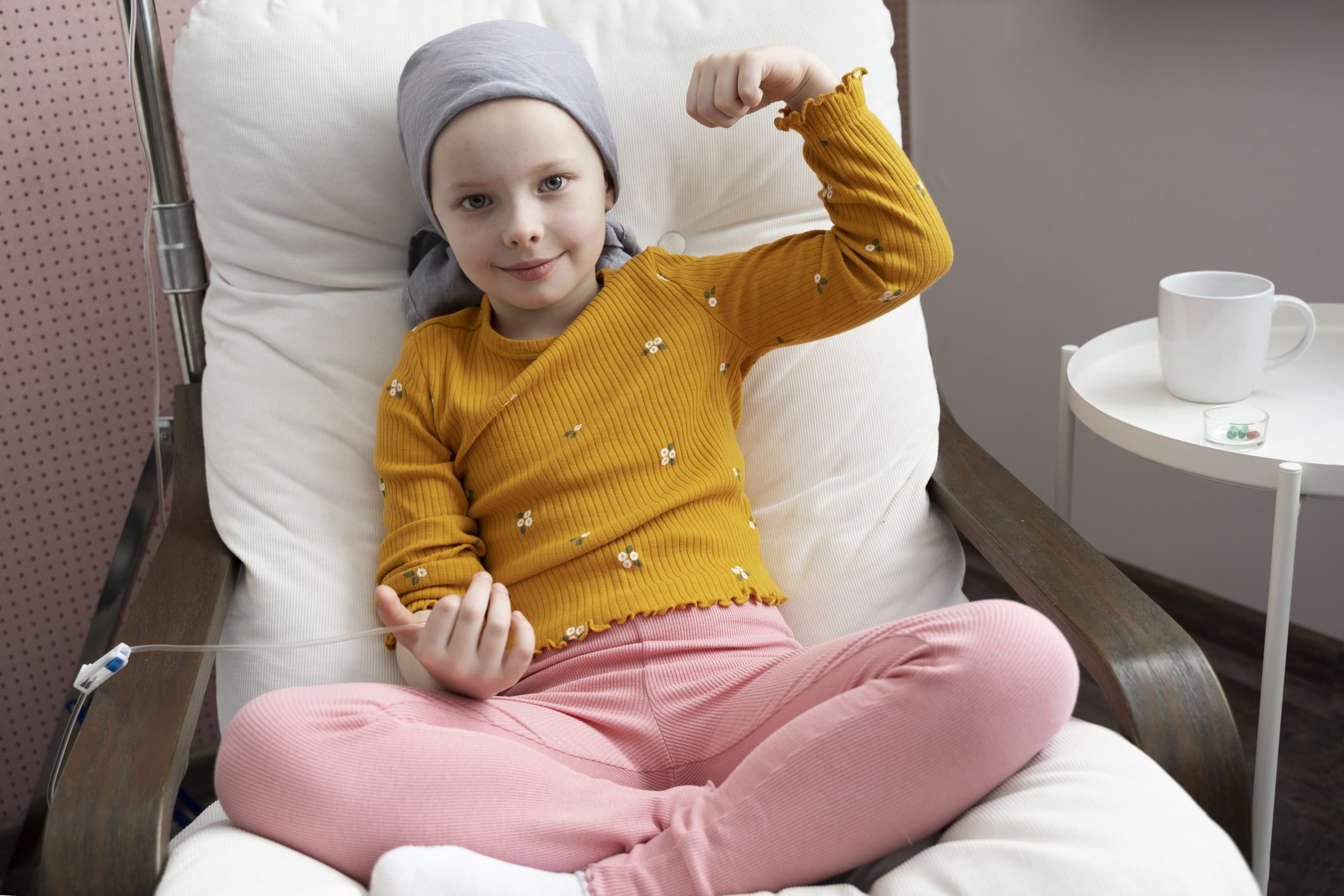

Immunotherapy with blinatumomab improves survival rates in children with an aggressive form of acute lymphoblastic leukemia (ALL) from 66% to 93%. They also experienced fewer treatment-related side effects. Based on the findings, blinatumomab will now become the standard treatment for babies with this aggressive form of leukemia globally.
Three-quarters of kids with acute lymphoblastic leukemia (ALL)—three babies every year in the Netherlands—have a specific flaw in their leukemia cells’ DNA. KMT2A rearrangement causes an aggressive type of ALL with a bad prognosis. Despite increased chemotherapy, these babies’ prognosis has not improved in recent decades.
For half of the newborns, intensive chemotherapy works quite well. However, the condition returned in half of the children within two years, or the children died from the sickness or its adverse effects. 90% of recurrences (when the cancer returns) occur within the two-year treatment period.
Some adults and older children with ALL are already receiving immunotherapy with the medication blinatumomab. It remained unknown whether this medication is likewise well tolerated and effective in infants. Blinatumomab attaches to both leukemia cells and immune cells on one side. This connects immune cells to leukemia cells and kills them.
An international clinical trial of blinatumomab in newborns with ALL was headed by researchers at the Princess Máxima Center for Pediatric Oncology in the Netherlands. Between 2018 and 2021, 30 children in nine countries received blinatumomab treatment. The Interfant-06 protocol was added to the existing chemotherapy treatment. The researchers compared the results to those of 214 children who had previously had Interfant-06 conventional therapy: the same drug, but without blinatumomab.
Babies who had one month of immunotherapy in addition to chemotherapy had a much greater survival rate: 93% of them were still alive two years after diagnosis, compared to 66% of infants who had previously only received chemotherapy.
This raises the survival rate of babies with a KMT2A rearrangement in their leukemia cells to that of older children with this type of blood cancer. Two years after their diagnosis, 18% of babies treated with blinatumomab had their cancer return or died from it. This also demonstrates a significant improvement when compared to babies treated without immunotherapy under the Interfant-06 protocol. During the two-year chemotherapy treatment, 51% of the patients had a recurrence or died.
The findings of the multinational clinical trial were published in the New England Journal of Medicine today (Wednesday, April 26).
The clinical trial was supervised by Dr. Inge van der Sluis, a pediatric oncologist and clinical pharmacologist at the Princess Máxima Center for Pediatric Oncology. She says, “It’s fantastic to see that we have made such progress for babies with ALL: the addition of immunotherapy to chemotherapy leads to much better survival and fewer side effects. We were already familiar with this immunotherapy from studies in other patient groups. This is the first time that we tested blinatumomab as a first-line treatment and for the first time in such young children.
“This was a small study, but with a clear enough result that all babies with this form of leukemia are now receiving immunotherapy as part of standard treatment. We want to confirm the effect of blinatumomab in a larger study with more children. We also want to see whether babies benefit from two courses of blinatumomab and a reduction in chemotherapy, in order to improve their quality of life even further.”
Prof. Dr. Rob Pieters, medical director, and pediatric oncologist at the Princess Máxima Center for pediatric oncology, leads the research group that carried out the study. He says, “The survival of children with acute lymphoblastic leukemia has risen to more than 90% in recent decades, but the cure rate for babies has lagged behind. These young children are much more likely to have an aggressive form of the disease. That’s why in 1999 we founded a large international collaboration of more than 25 countries, looking for improvements in treatment.
“Babies with leukemia often have a recurrence early in treatment. That’s why it was important to give the immunotherapy right at the start of the treatment. It’s wonderful to see that this is yielding such a good result and that we are implementing the addition of immunotherapy into worldwide standard treatment straight away.”
more recommended stories
 Tuberculosis Breakthrough with Experimental Antibiotics
Tuberculosis Breakthrough with Experimental AntibioticsKey Takeaways Experimental antibiotics disrupt a.
 National Healthy Longevity Trial Receives Federal Support
National Healthy Longevity Trial Receives Federal SupportKey Summary Up to $38 million.
 Red Blood Cells Improve Glucose Tolerance Under Hypoxia
Red Blood Cells Improve Glucose Tolerance Under HypoxiaKey Takeaways for Clinicians Chronic hypoxia.
 Nanoplastics in Brain Tissue and Neurological Risk
Nanoplastics in Brain Tissue and Neurological RiskKey Takeaways for HCPs Nanoplastics are.
 AI Predicts Chronic GVHD Risk After Stem Cell Transplant
AI Predicts Chronic GVHD Risk After Stem Cell TransplantKey Takeaways A new AI-driven tool,.
 Red Meat Consumption Linked to Higher Diabetes Odds
Red Meat Consumption Linked to Higher Diabetes OddsKey Takeaways Higher intake of total,.
 Pediatric Crohn’s Disease Microbial Signature Identified
Pediatric Crohn’s Disease Microbial Signature IdentifiedKey Points at a Glance NYU.
 Nanovaccine Design Boosts Immune Attack on HPV Tumors
Nanovaccine Design Boosts Immune Attack on HPV TumorsKey Highlights Reconfiguring peptide orientation significantly.
 High-Fat Diets Cause Damage to Metabolic Health
High-Fat Diets Cause Damage to Metabolic HealthKey Points Takeaways High-fat and ketogenic.
 Acute Ischemic Stroke: New Evidence for Neuroprotection
Acute Ischemic Stroke: New Evidence for NeuroprotectionKey Highlights A Phase III clinical.

Leave a Comment